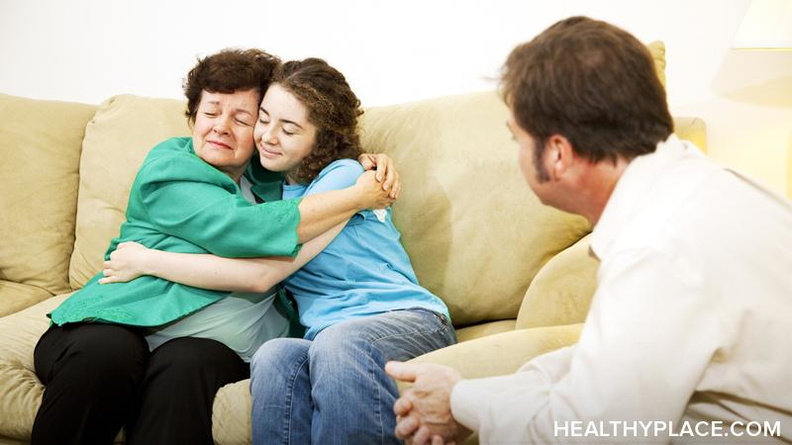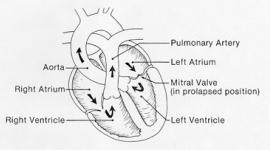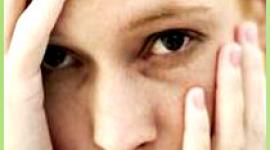Anxiety in the Elderly

Read about diagnosis and treatment of anxiety in older adults and how adult children can recognize if their aging parent has an anxiety problem.
Research, on both the course and treatment of anxiety in older adults, lags behind that of other mental conditions, such as depression and Alzheimer's. Until recently, anxiety disorders were believed to decline with age. But now experts are beginning to recognize that aging and anxiety are not mutually exclusive: anxiety is as common in the old as in the young, although how and when it appears is distinctly different in older adults.
Anxiety disorders in the elderly population are real and treatable, just as they are in younger people. Another commonality between old and young is the high incidence of depression with anxiety. Depression and anxiety go together in the elderly, as they do in the young, with almost half of those with major depression also meeting the criteria for anxiety and about one-quarter of those with anxiety meeting criteria for major depression. As with younger persons, being a woman and having less formal education are risk factors for anxiety in older adults.
Most older adults with an anxiety disorder had one when they were younger. What "brings out" the anxiety are the stresses and vulnerabilities unique to the aging process: chronic physical problems, cognitive impairment, and significant emotional losses.
Late-life anxiety disorders have been underestimated for several reasons, according to experts. For example, older patients are less likely to report psychiatric symptoms and more likely to emphasize their physical complaints, and some major epidemiological studies have excluded Generalized Anxiety Disorder, one of the most prevalent anxiety disorders in older adults.
Recognizing Anxiety in the Aging
Recognizing an anxiety disorder in an older person poses several challenges. Aging brings with it a higher prevalence of certain medical conditions, realistic concern about physical problems, and a higher use of prescription medications. As a result, separating a medical condition from physical symptoms of an anxiety disorder is more complicated in the older adult. Diagnosing anxiety in individuals with dementia can be difficult, too: agitation typical of dementia may be difficult to separate from anxiety; impaired memory may be interpreted as a sign of anxiety or dementia, and fears may be excessive or realistic depending on the person's situation.
Treatment of Anxiety in Seniors
 Diagnosis and treatment in most cases should start with the primary care physician. Many older people feel more comfortable opening up to a doctor with whom they already have a relationship. Also, if they already trust their primary care physician, the chances are increased that they will go along with treatment or a referral to a mental health professional."
Diagnosis and treatment in most cases should start with the primary care physician. Many older people feel more comfortable opening up to a doctor with whom they already have a relationship. Also, if they already trust their primary care physician, the chances are increased that they will go along with treatment or a referral to a mental health professional."
Both medication and psychosocial therapies are used to treat anxiety in older persons, although clinical research on their effectiveness is still limited. Anti-depressants (specifically the selective serotonin reuptake inhibitors or SSRIs), rather than anti-anxiety medication (such as the benzodiazepines), are the preferred medication for most anxiety disorders. Cognitive Behavioral Therapy (CBT) is being used increasingly to reduce anxiety in older adults. CBT may involve relaxation training, cognitive restructuring (replacing anxiety-producing thoughts with more realistic, less catastrophic ones) and exposure (systematic encounters with feared objects or situations). CBT can take up to several months and has no side effects.
Success in treating anxiety in the older patient depends, in part, on a partnership between the patient, the family, and the doctor. Everyone needs to agree on what the problem is and make a commitment to stick with treatment until the patient can return to normal functioning. Family members may need to advocate for the older person, ensuring that issues encountered during treatment--such as drug side effects--are dealt with promptly.
Diagnosing Anxiety in the Aging
Often the elderly are reluctant to report psychiatric problems. To help identify anxiety it may be useful to phrase questions in the following way:
To identify anxiety:
- Have you been concerned about or fretted over a number of things?
- Is there anything going on in your life that is causing you concern?
- Do you find that you have a hard time putting things out of your mind?
To identify how and when physical symptoms began:
- What were you doing when you noticed the chest pain?
- What were you thinking about when you felt your heart start to race?
- When you can't sleep, what is usually going through your head?
Adapted from Ariel J. Lang, Ph.D., and Murray B. Stein, M.D., "Anxiety Disorders: How to Recognize and Treat the Medical Symptoms of Emotional Illness," Geriatrics. 2001 May; 56 (5): 24-27, 31-34.
Worried about an Anxiety in Your Aging Parent?
Talking to your elderly parent or loved one about any changes in their lives is one of the best ways to find out if there is a problem. Ask about any changes you notice in the following:
- Daily routines and activities. Is Grandma refusing to do previously routine activities or avoiding social situations she used to enjoy?
- Worries. Does Dad seem to have more worries than before and do those worries seem out of proportion to reality (such as a real threat to his safety).
- Medication. Has Mom recently started taking another medicine? Is she using more of a particular medication than before? Medication side effects (such as breathing problems, irregular heartbeat, or tremors) can simulate symptoms of anxiety. Also, an increased use of medication (or alcohol) may indicate an attempt to "self-medicate."
- Overall mood. Depression and anxiety often occur together. Tearfulness, apathy, and a loss of interest in formerly enjoyable activities are possible signs of depression.
Source:
- Anxiety Disorders Association of America Newsletter, New Thinking on Anxiety and Aging: Anxiety Disorders Common in the Elderly.
next: Help A Loved One With Anxiety
~ anxiety-panic library articles
~ all anxiety disorders articles
APA Reference
Tracy, N.
(2007, February 17). Anxiety in the Elderly, HealthyPlace. Retrieved
on 2026, January 13 from https://www.healthyplace.com/anxiety-panic/articles/anxiety-in-the-elderly



